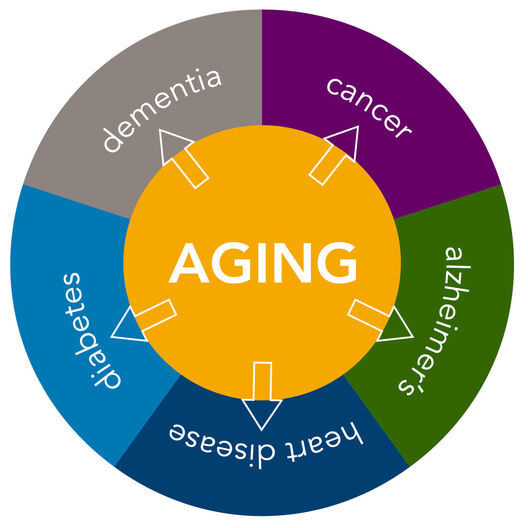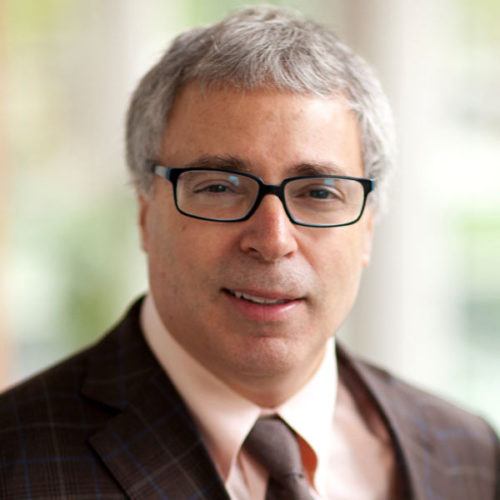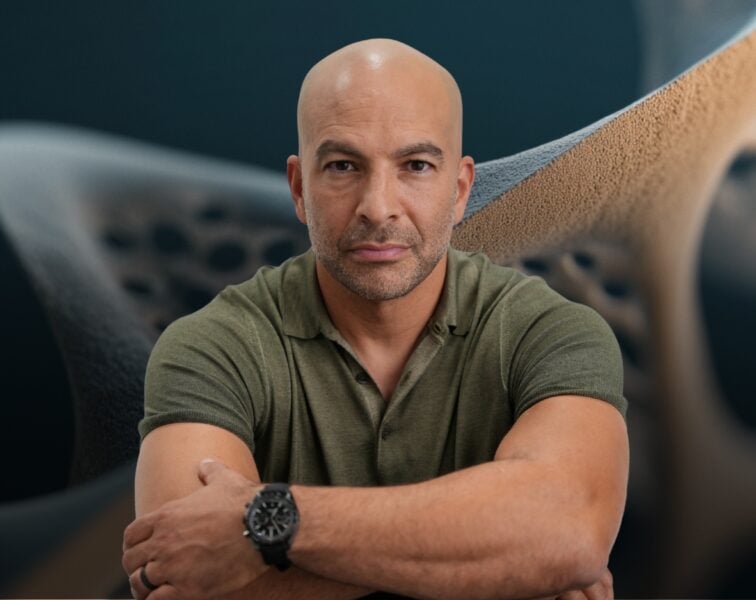This video clip is from episode #204 – Centenarians, metformin, and longevity with Nir Barzilai, M.D., originally released on April 25, 2022.

Show Notes
Clinical studies of Metformin
- Peter asks if there are any clean examples of studies that demonstrate gero-protection of Metformin in humans?
- Nir replies that even the clinical studies are not perfect studies, but there are still enough of clinical studies (or small studies) that provide confidence
- There are 2 studies of people with mild cognitive impairment that were treated with Metformin with some success
- In 1, patients were treated for half a year
- In another, patients were treated for 1 year, and some of the outcomes have changed
- There is no different in how they were treated
- They didn’t have diabetes, so it’s not that they switched to other medications
- There are 2 studies of people with mild cognitive impairment that were treated with Metformin with some success
- If these studies (and other similar studies showing benefit of Metformin) were compelling enough you could argue that we wouldn’t need TAME
The TAME trial (Targeting Aging with Metformin) [1:39:00]
Geroscience and the study of disease
- There are studies for individual diseases of old age but there are no studies agnostic of disease
“We’re targeting aging. We don’t care what disease you have and we don’t care which disease you’re going to get”— Nir Barzilai
- In geroscience we think aging is going to drive your next disease (outlined in the figure below)
- Therefore it’s the cluster that is going to count; and we’re counting the clusters
- You get a point for mortality, just like you get a point for a disease

Figure 3. Diseases of old age. Image credit: American federation for aging research
- Imagine if reduction of cardiovascular disease comes up in the TAME study
- The FDA will tell us to stop the study because we cannot continue with the placebo
- This would ruin it for us
- So the whole problem of the statistics of TAME is to make sure that we’re not getting a significant effect for any disease
- We’re just focusing on trends, cluster of disease
- If mortality is significant that will trigger an early end of the study as well
- The FDA will tell us to stop the study because we cannot continue with the placebo
- Peter asks, “So statistically, your biggest mistake here is overpowering the study for mortality and therefore appropriately powering the study for subsets of disease-specific mortality?”
- Yes
Details of the TAME trial
- This is a study that is going to look at people who do not have Type II diabetes, who are between the ages of 65-79
- There are some other exclusion criteria (having cancer in the last year) but it’s not important for this discussion
- These these people are going to be taking statins; they’re going to be taking medication for blood pressure; some of them will be overweight; some of them will be normal weight
- They don’t want to recruit future centenarians
- These people need to have something to show their age
- Such as a walking speed of less than 6 M/sec
- They are not exceptionally fit
- Peter compares it to the patient population that PREDIMED started with
- This was a primary prevention study for cardiovascular disease that found a statistical significant difference in under 5 years (but expected the study to go for 7 years)
- You’re looking for people whose risk of death in the next five years is high enough that you’re going to move the needle [with Metformin]
- The risk of this patient group is you may get a negative study, which means there is no difference in all cause mortality or even disease-specific mortality
- And the counterargument might be that you started too late
- That’s like applying the brakes on a car that’s driving towards a cliff, when it’s only 20 feet from the cliff
- Should this be a longer study where you start this at people when they’re 50 and your 5 year mortality expectation is very low?
- Peter’s not saying this can be done because it’s a very expensive study
- Nir notes there are 2 arguments here
- 1) Starting a study at 50 years old where you have to show mortality is going to be a 20-year study
- This is too expensive
- We need to start this study when people are starting to accumulate disease in order to have a lot of events
- Our hypothesis is that the aging part of your biology doesn’t stop working when you’ve had your first disease
- It’s still going to get your next disease
- If we think biologically like that, we should be able to intervene quite late, as we do with animals
- 2) There are Metformin studies which included elderly people and their results in prevention diabetes were similar to that of younger people
- The DPP had 20% over the age of 60
- There are several other studies that tell us that Metformin will still target aging even if you start it later
- 1) Starting a study at 50 years old where you have to show mortality is going to be a 20-year study
- Peter notes, if TAME shows a reduction in all cause mortality in older people, this would suggest biologically that there would be a benefit to starting sooner
- But how soon?
- Nir clarifies that they are only looking at trends in mortality in TAME (not an endpoint of mortality)
- The primary outcome of TAME is to look at the cluster of cardiovascular disease, cancer, cognitive disease, and mortality
- Patients get 1 point for each
- Peter asks why mortality is given equal weight to disease occurrence, why wouldn’t it be 3 points?
- Nir replies that each of these are an outcome, each incurs health spending
Selected Links / Related Material
Previous podcasts with Nir Barzali:
- #123 – Joan Mannick, M.D. & Nir Barzilai, M.D.: Rapamycin and metformin—longevity, immune enhancement, and COVID-19 | Host Peter Attia, The Peter Attia Drive Podcast (August 10, 2020) | [0:45]
- #35 – Nir Barzilai, M.D.: How to tame aging | Host Peter Attia, Host Peter Attia, The Peter Attia Drive Podcast (January 7, 2019) | [1:00]
TAME trial website: The TAME Trial: Targeting the Biology of Aging. Ushering a New Era of Interventions | afar (American federation for aging research) | [1:45, 37:00, 1:30:30, 2:05:15]
TAME trial, clinical data on the role of Metformin in improving longevity: Metformin as a Tool to Target Aging | Cell Metabolism (n Barzilai et al. 2016) | [1:31:30]
Nir Barzilai’s TED talks:
- How to die young at a very old age | Nir Barzilai | TEDxGramercy (September 30, 2014)
- Nir Barzilai: Can we grow older without growing sicker? | TEDMED (2016)
- Ageing is a treatable disease | Nir Bazilai | TEDxBeaconStreetSalo (June 9, 2020)
- How to stop, delay and even reverse aging | TEDx Gateway (May 21, 2021)
Nir Barzilai’s book: Age Later: Health Span, Life Span, and the New Science of Longevity by Nir Barzilai (June 16, 2020)

Nir Barzilai, M.D.
Born in Israel, Dr. Barzilai graduated from The Ruth and Bruce Rappaport Faculty of Medicine at the Technion-Israel Institute of Technology in Haifa and completed his residency in internal medicine at Hadassah Medical Center in Jerusalem. He served in a refugee camp during the war in Cambodia (1979-1980) and built a nutritional village in the homeland of the Zulu (1983 – Kwazulu). He has completed 2 fellowships at Yale (metabolism) and Cornell (Endocrinoology and molecular Medicine). He served as chief medic and physician in the Israel Defense Forces. He was an invited speaker to the 4th Israeli President Conference (2012) and a Vatican conference on efforts to enhance cures (2013, 2016). He has also taken part in Global initiatives and spoke at The Milken Global Institute, Asian Megatrends and is an advisor for the Prime Minister of Singapore on Aging. Dr. Barzilai has been on the ‘Forward 50, top 50 influential Jews in the US (2011). His work has been profiled by major outlets, including the New York Times, the BBC and PBS’ NOVA science now, TEDMED and several TEDx talk is the leading feature on the Ron Howard/Jonathan Silberberg/National Geographic film about the Age of Aging. He authored Age Later (2019).
Dr. Nir Barzilai is the director of the Institute for Aging Research at the Albert Einstein College of Medicine and the Director of the Paul F. Glenn Center for the Biology of Human Aging Research and of the National Institutes of Health’s (NIH) Nathan Shock Centers of Excellence in the Basic Biology of Aging. He is the Ingeborg and Ira Leon Rennert Chair of Aging Research, professor in the Departments of Medicine and Genetics, and member of the Diabetes Research Center and of the Divisions of Endocrinology & Diabetes and Geriatrics at Albert Einstein College of Medicine.
Dr. Barzilai’s research interests are in the biology and genetics of aging. One focuses on the genetic of exceptional longevity, where we hypothesize and demonstrated that centenarians have protective genes, which allows the delay of aging or for the protection against age-related diseases. In a Program he is leading we take full advantage of phenotypes, DNA, and cells from the Ashkenazi Jewish families with exceptional longevity and the appropriate controls and his group have established at Einstein (over 2600 samples of which ~670 are centenarians) and discovered underling genomic differences associated with longevity. Longevity Genes Project (LGP) is a cross-sectional, on-going collection of blood and phenotype from families with centenarian proband. LonGenity is a longitudinal study of 1400 subjects, half offspring of parents with exceptional longevity, validating and following their aging in relationship to their genome. The second direction, for which Dr. Barzilai is holding an NIH Merit award that focuses on the metabolic decline of aging, and his team hypothesize that the brain leads this decline. His lab has identified several central pathways that specifically alter body fat distribution and insulin action and secretion by intraventricular or hypothalamic administration of several peptides that are modulated by aging including: Leptin, IGF-1, IGFBP3, and resveratrol.
He has received numerous grants, among them ones from the National Institute on Aging (NIA), American Federation for Aging Research, the Ellison Medical Foundation, and The Glenn Medical Foundation. He has published over 280 peer-reviewed papers, reviews, and textbook chapters. He is an advisor to the NIH on several projects and serves on several editorial boards and is a reviewer for numerous other journals. Dr. Barzilai is in the Scientific Director and on the board of the American Federation for Aging Research, is its co-scientific director, and has served on several NIA study section. He is also a founder of CohBar Inc., a biotech that develops mitochondrial derived peptides as therapy for aging and its diseases and of Life Biosciences biotech. Dr. Barzilai has been the recipient of numerous prestigious awards, including the Beeson Fellow for Aging Research, the Ellison Medical Foundation Senior Scholar in Aging Award, the Paul F. Glenn Foundation Award, the NIA Nathan Shock Award, the 2010 Irving S. Wright Award of Distinction in Aging Research and the IPSEN Longevity Prize (2016).
He is currently leading an international effort to approve drugs that can target aging. Targeting Aging with METformin (TAME) is a specific study designed to prove the concept that multi-morbidities of aging can be delayed by metformin, working with the FDA to approve this approach which will serve as a template for future efforts to delay aging and its diseases in humans.



